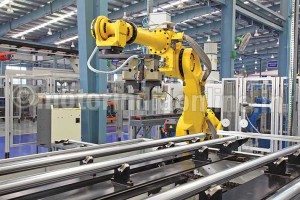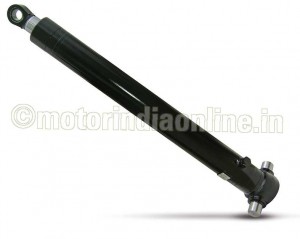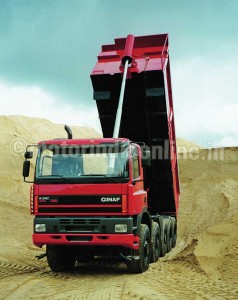With over six decades of experience in design and manufacture of custom-made hydraulic cylinders for a wide range of applications, Wipro Infrastructure Engineering has established itself as one of the most preferred hydraulics solutions providers in the world. The company, which is the engineering division of Wipro Enterprises Ltd. of Bangalore, caters to segments like Material & Cargo Handling, Truck Hydraulics, Mining, Construction & Earthmoving, Farm & Agriculture, Aerospace & Defence.
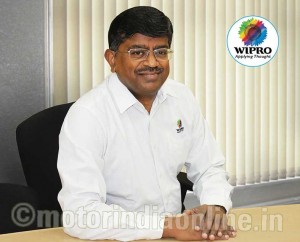
MOTORINDIA recently had an opportunity to interact with Mr. R. Vasudevan, Senior Vice-President and Head – Global Sales, Wipro Infrastructure Engineering, when different issues of importance to the company came up for discussion.
Wipro Infrastructure Engineering, the company’s first B2B diversification from its initial consumer-care focus, has 14 manufacturing bases located across India, Northern Europe, Eastern Europe, the US, Brazil and China, equipped with best-in-class machineries to produce cylinders for various applications. The company deploys highly-advanced technology for hydraulic cylinder manufacturing, encompassing complete design and engineering know-how, in-house machining capabilities by well-trained and skilled manpower.
Being a home-grown Indian company, Wipro has laid firm foundation in the domestic market, but what is eye-catching is its extensive presence in global markets. Talking about how the company had spread its wings beyond the Indian market, Mr. Vasudevan says: “In the early 2000s, the Indian market had not really grown so much for the usage of hydraulic cylinders and mechanisation as far as construction equipment was concerned. Neither were there too many large projects. By around 2004-05, there was a significant boom in business when we realised that with our expertise, potential and knowledge in the domain, we should not stay confined to one country and should start looking at other global markets. We started off our global expansion when we made our first acquisition in Europe in 2006.”
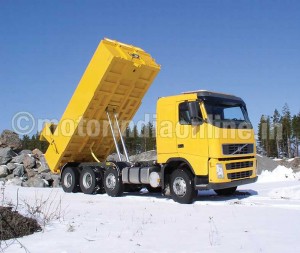 Wipro acquired the Hydrauto Group, a leading supplier of hydraulic cylinders, including Nummi Truck Hydraulics components in Europe with manufacturing facilities in Sweden and Finland. The acquisition gave it significant footprint in the lucrative European market. In 2010, the company expanded its geographical presence by setting up a manufacturing unit in one of the world’s most promising hydraulic cylinder markets, China, at Changzhou. The following year, it entered the Brazilian market by acquiring R.K.M. Equipamentos Hidrãulicos Ltd., a prominent hydraulic cylinder manufacturer located at Piracicaba. In 2013, Wipro set up a base in Romania by acquiring S.C. Hervil S.A., another important hydraulic equipment producer.
Wipro acquired the Hydrauto Group, a leading supplier of hydraulic cylinders, including Nummi Truck Hydraulics components in Europe with manufacturing facilities in Sweden and Finland. The acquisition gave it significant footprint in the lucrative European market. In 2010, the company expanded its geographical presence by setting up a manufacturing unit in one of the world’s most promising hydraulic cylinder markets, China, at Changzhou. The following year, it entered the Brazilian market by acquiring R.K.M. Equipamentos Hidrãulicos Ltd., a prominent hydraulic cylinder manufacturer located at Piracicaba. In 2013, Wipro set up a base in Romania by acquiring S.C. Hervil S.A., another important hydraulic equipment producer.
Staying ahead of competition with the latest technology and through continuous development in the areas of design, manufacturing and quality assurance systems, Wipro Infrastructure Engineering has proved the largest independent cylinder manufacturer in the world.
Domestic market
In India, Wipro’s product range can be broadly categorised into double acting cylinders focusing largely on the construction and agricultural equipment segments and truck tipping systems. The company has been a pioneer in underbody tipping (UBT) kits in India for a very long time and is a very well-known and successful brand in the segment. In the technologically-superior front-end tipping (FET) market too, a segment which has been growing steadily in the country, the company has managed to establish its good presence over the years.
The company has also its strong pan-India presence with four manufacturing facilities located at Bangalore and Chennai and one at Hindupur which has a significant installed capacity of producing over 2,000 kits of the front-end type and 4,000 underbody kits per month. It has 28 dealers who sell and service its range of products across the country and, in addition, has a 33 member pan-India service network to provide aftersales support for its customers.
Consolidating its strengths such as cost-effective production and frugal engineering in the domestic market and global presence and reach through overseas facilities, Wipro has arrived at some very good synergies which it continues to build upon. “We have a technical centre in India, for construction equipment, which supports our entire global operations. We also have two centres of excellence for truck tipping systems, one in India and the other in Europe which has strong expertise in material handling and mining as well. In the process of sharing our knowledge and expertise in different parts of the globe, we have also developed synergies in our manufacturing model. Like in many cases, India can be a very good source of components that can be exported from here and utilised at our facility in Brazil or Europe”, Mr. Vasudevan adds.
Driven by strong technical know-how and design and development capabilities, extensive presence across the country and its globally-acclaimed brand value, Wipro is a hydraulics partner for almost all the leading vehicle OEMs in the construction equipment and truck segments in India. “In India, we have the right tie-ups with the right players. In the truck tipping segment, we work with all major OEMs, including Tata Motors, who are our major customer, Ashok Leyland, VECV, Mahindra, Scania and Daimler. In the construction equipment segment, our major customers include JCB and Caterpillar though we work with almost every other player in the segment”, he reveals.
Focus on FET
Being a clear market leader when it comes to UBT kits, Wipro is working on strengthening its presence in the FET space, where it runs a close second in terms of market share. As infrastructure improves in India, demand for transport of higher tonnage of goods using a single vehicle is naturally expected to increase. When the concept of FET first came into India, enabling higher-tonnage operations, there was a common perception that the UBT segment would be hit very fast. But it was not to be, since underbodies remained, and continue even today to be a better solution in hilly terrains. This apparently explains the dominance of UBT over FET in States such as Kerala and Himachal Pradesh.
“We did not find a big drop in UBT. With the hub and spoke model growing, many transporters still want the seven- and nine-tonne tippers. The numbers of these vehicles have come down seasonally, but the market size has not been impacted much. The multi-axle tippers – the 25-tonners and above – usually come with FET kits due to the better lifting achieved with lesser force. We operate in both 16- and 25-tonne categories and this year we will be addressing the 31-tonne and above segment also, as part of our strategy to become a strong player in the mining segment. In the tip-trailer segment, we have the capacity to go up to lifting 60-tonne loads and are working on tipping systems for further higher load levels as well”, says Mr. Vinaykumar Ragi, Sales Manager – Truck Hydraulics, Wipro Infrastructure Engineering, complementing Mr. Vasudevan’s views.
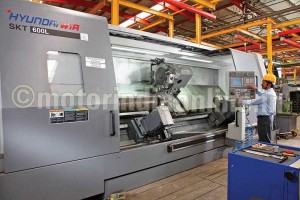 The year 2011-12 was quite good for the country’s tipper market with nearly 82,000 tippers being sold. A total of 36,000 (nearly 44 per cent) of them had underbody kits while the others were with front-end systems. This gives a ratio of 55:45 in favour of FETs. Wipro expects the ratio to settle at somewhere around 70:30 in the long run, though the projection is dependent on whether the country’s infrastructure grows as expected and as promised by the Government.
The year 2011-12 was quite good for the country’s tipper market with nearly 82,000 tippers being sold. A total of 36,000 (nearly 44 per cent) of them had underbody kits while the others were with front-end systems. This gives a ratio of 55:45 in favour of FETs. Wipro expects the ratio to settle at somewhere around 70:30 in the long run, though the projection is dependent on whether the country’s infrastructure grows as expected and as promised by the Government.
In 2011-12, Wipro had over 85 per cent market share in underbody kits, reflecting its market dominance in the segment. Being in second position in the FET kit space at present, the company has set its sights on taking over the top spot by the end of the next financial year.
With signs of growth in the market, Wipro expects a positive trend in the coming years. It also expects changes in the Government policy towards the mining industry where FETs play a major role. So, if everything goes as planned, the world’s largest independent cylinder manufacturer, apart from expanding its footprint both within India and by entering into new geographies, strengthening its product portfolio and honing its technical capabilities, will take the top spot in the FET segment by the end of FY16.
